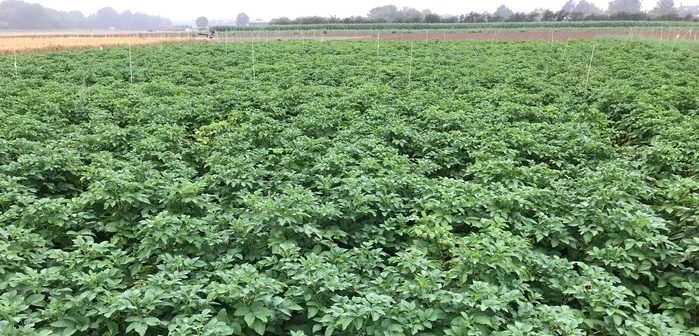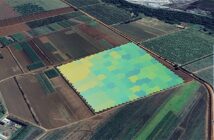A recent trial in potatoes has shown that using smart liquid fertilisers can significantly reduce the amount of phosphate required to generate one tonne of yield when compared to traditional granular fertilisers.
Carl Gibbard, Agro-Vital technical manager, explains this insight could pay dividends as growers plan their crop nutrition programme for the upcoming season and seek more environmentally sustainable products.
“The healthy establishment of potatoes has significant effects on the final yield a grower can achieve. Therefore, delivering the right nutrients to the plant at the right time, particularly phosphate, is incredibly important for the success of a potato crop,” says Mr Gibbard.
“Our 2020 trials, carried out in collaboration with Oxford Agricultural Trials (OAT), looked at exactly this – the efficiency of P-Focus, an NPK liquid fertiliser, against a farm-standard triple super phosphate (TSP) measuring yield repone and quality of Maris Piper potatoes.”
The trial results showed no significant difference in yields from the plots grown with the farm standard TSP and the liquid fertiliser when applied at planting, but the total amount of phosphate used to generate each tonne of potatoes was drastically reduced when using the liquid starter fertiliser.
“In the farm-standard TSP plots, 3.56 kg/ha of P2O5 was required for each tonne of yield. Whereas the potatoes grown with P-Focus liquid fertiliser only needed 0.28 k/ha of P2O5 per tonne of yield which shows a significant reduction,” explains Mr Gibbard.
“This difference highlights a reduced need for high volume applications of fertilisers which can help growers to save both time and money.
“Choosing effective and more sustainable fertilisers for crop nutrition is going to be a really important consideration for growers over the next few years particularly in light of ELMs and rising input prices.
“Having options such as P-Focus on the market will be invaluable for growers in order to combat the day-to-day farm pressures they face and will allow farmers to adopt a more sustainable approach to farming while still producing a high yielding, quality crop,” he concludes.




